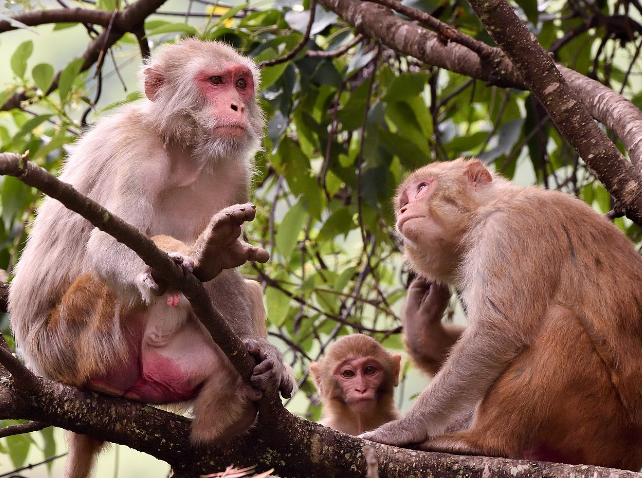Dozens of macaque monkeys are on the loose in a small South Carolinian town after escaping from a medical research facility.
The animals escaped on at 1pm on Wednesday from the Alpha Genesis lab that tests experimental drugs and vaccines for various infectious diseases and disorders.
One local resident said on X, formerly Twitter: ‘The monkeys escape from Yemassee every year. That s*** happens every year! The workers forget to lock up the cages and they go crazy!’


‘If you spot any of the escaped animals, please contact 911 immediately and refrain from approaching them.’
